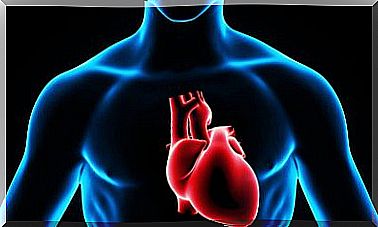How Does Stress Affect The Heart?
Psychological factors can negatively affect multiple organs in the human body . This time we will develop how stress affects the heart and the entire cardiovascular system. In practice, almost all medical illnesses are influenced by mental health.
Mind and body are in intimate relationship and constant interaction. In loss of balance, risk factors are increased to increase morbidity and mortality.
What is stress?
Stress is the body’s way of reacting to situations that are threatening or challenging. This type of reaction is intended to protect against threatening problems.
In small installments, stressful situations should not threaten health. But instead, if they become permanent or are too intense, they could be harmful.
Stress can affect almost all general diseases, as we already mentioned, including those whose production mechanism is well known. Coronary heart disease, for example, or diabetes, as well as migraine headaches, irritable bowel syndrome, and fibromyalgia.

How does stress affect the heart and cardiovascular system?
The negative relationship that exists between stress and ischemic heart disease has been demonstrated almost 20 years ago by studying patients with coronary heart disease. Later, many other investigations confirmed the same. However, the exact mechanisms by which the association occurs remain uncertain.
Have been found various hypotheses by which emotional stress could trigger an acute myocardial infarction, such as increased blood pressure, heart rate, vascular tone, and even platelet aggregation capacity. All of them closely related to the release of neurotransmitters.
The significant increase in heart rate and blood pressure could cause an increase in myocardial oxygen demand. In certain conditions of the patient, that is, in those who present a higher previous risk, it may lead to an acute heart attack.
All these factors also refer to certain abnormalities in the autonomic nervous system. This is the neural part that is responsible for involuntary actions, such as breathing or the heartbeat.
If the person has established risk factors, such as the presence of atherosclerotic plaques in the small arteries, then the discharge from the nervous system could lead to a plaque accident. This is the situation where atheromas rupture and obstruct circulation, interrupting the flow of oxygen to the tissues.
In addition, it should be clarified that stressful situations in daily life can cause an increase in the number of cigarettes consumed by smokers. In the same way, in some people they cause deterioration in diet, with the consequent increase in blood cholesterol.
Symptoms of stress that affects the heart
Some people are more prone to signs of stress than others, either because of their personality or because of situations they have experienced. . For them, it will be very important to develop mechanisms that allow them to deal with those triggers that destabilize them in a healthy way.
One of the classic symptoms of stress that affects the heart is palpitations. These are accelerations of the heartbeat, with tachycardia, which feels like a pounding in the chest.
Chest pain can also be a manifestation of the problem. Not always with the presentation of the heart attack, but rather dull and insidious, like a constant oppression that oscillates between acute and calm periods.
Tips to fight stress that affects the heart
Recognition of the interaction of stressors and various heart diseases should favor the development of prevention strategies. There are people who are at greater risk for presenting conditions that would lead to heart attacks or strokes.
Prevention of cardiovascular events may be possible if, together with diet and physical exercise, techniques that reduce stress are prescribed. Relaxation strategies can be used at the time of severe emotional problems. In turn, it would be ideal to avoid known stress triggers.
In general, the goal of a stress management program will be to reduce the impact on the patient. Stressors will never be completely eliminated, but they can be limited, just as they can be contained and turned into stimuli for individual improvement.

When should we see the doctor
How much stress will affect the heart, in each individual person, is impossible to predict. Despite this, the identification of problematic situations, such as a bereavement, for example, should alert us to the need to seek professional help to avoid negative consequences.
Additionally, it is advisable to adopt healthy habits. Among them, specify a healthy and balanced diet, avoid cigarettes and excess alcohol, as well as perform regular physical activity, preferably aerobic. The sleep routine is another tool that reduces anxiety.
In addition and, as far as possible, we must avoid or reduce those stressful situations that are within our reach of being altered. All of this will not only have a positive impact on your heart health, but also your general well-being.









